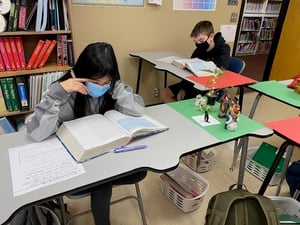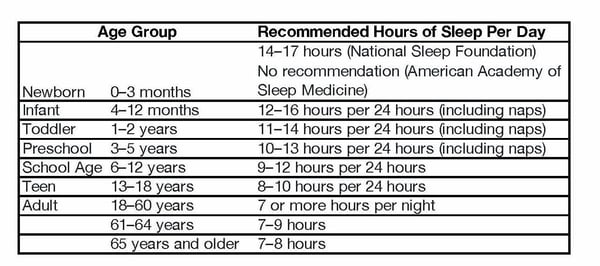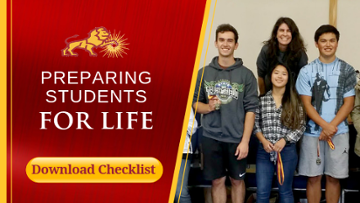When schools closed across the country last spring, most of us never could have imagined just how long the distance learning would last. As our children transition back to in-person school, it’s a return to “normal” but not without some changes. We’ve put together a list of the top 8 ways parents can help support their children (and the entire family) to get back into the swing of in-person school.
imagined just how long the distance learning would last. As our children transition back to in-person school, it’s a return to “normal” but not without some changes. We’ve put together a list of the top 8 ways parents can help support their children (and the entire family) to get back into the swing of in-person school.
1. Sleep –
Ensure your child is getting enough sleep and getting back to a regular sleep schedule because being tired makes everything harder. That goes for you too, parents and caregivers! Many of our sleep schedules have gotten off track. It’ll take a few weeks to get back to normal, but be consistent with going to bed and waking up at the same time each day (even on weekends) to help reset everyone’s body clock. See the chart below from the Centers for Disease Control and Prevention (CDC) to see how many hours a sleep a night your child needs by age.

2. Keep the calendar light –
As your student adjusts to being back at school in-person, try to keep the calendar free of other commitments for the first couple of weeks, as they’re likely to be tired and need time to recharge. Keep their age in mind. For younger students, going from school, to piano lessons, to a friend’s house is probably more than they can handle during the transition.
3. Address any fears or anxiety your child may have –
Some children have experienced heightened anxiety during this time and going back in person may increase their fears of getting sick or getting a family member sick. Talk to your child about all that their school is doing to keep them safe and reassure them that you would never put them in a position that would knowingly endanger them. While you can’t promise they won’t get sick, you can let them know that you’ll be there to care for them should they become ill. Be careful not to transfer your anxiety or fears to your child, too. Separation anxiety may also be an issue, as we’ve all been home together for so long. Validate their feelings and then remind them of all the things they loved about school before the pandemic – friends, teachers, recess, etc. You can also discuss fun things you’ll do together after school to let them know you’ll still have lots of quality time together as a family.
4. Be available –
Remind your child that it’s normal to feel overwhelmed and that it takes time for us to adjust to change of any kind. Be available and present for extra quality time, affection, and time to talk about anything they are feeling. Proactively check in and watch for changes in behavior that may signal they’re struggling with the transition.
5. Nutrition –
Your child may have gotten used to snacking throughout the day with the kitchen conveniently close by, and many of us leaned on comfort food more than we probably should have during the lockdown. A healthy diet creates a mind and body ready to learn, so pack a nutritious lunch and provide snacks with a mix of complex carbs, fats, and protein. Also, send your child to school with a water bottle so they can stay hydrated as most schools are not operating drink fountains due to extra safety precautions.
6. Prepare the night before –
Lay out clothes for the next day, have lunches packed, the backpack ready, and don’t forget a mask and hand sanitizer. Having everything ready to go the night before leads to a much more peaceful morning, and that ensures your child will be starting the school day ready to learn instead of already stressed.
7. Practice leading up to the day –
Schools across Oregon will have mask policies, and wearing a mask all day might be something new for your child. Help them prepare by getting used to wearing a mask for longer stretches of time in the days leading up to the return to in-person schooling. Much like having shoes that fit right, a mask that fits properly is just as important for them to be comfortable all day. Remember that your attitude about wearing one rubs off on your child – keep it positive and set a good example so that you can make it easier for them regardless of your personal feelings about the matter. Your child’s school needs your support more than ever, and showing your child you trust their school’s decisions will help make them feel safe and secure.
8. Patience and grace –
Change is hard, so have patience with your child, yourself, school administrators, and teachers as everyone gets back into a routine. We could all use extra grace during this time, and it will get easier after a few weeks.
.png?width=209&name=CSLA%20Logo%20Alt%20(1).png)
